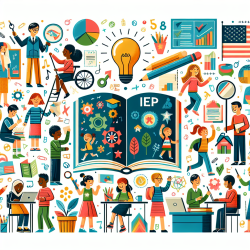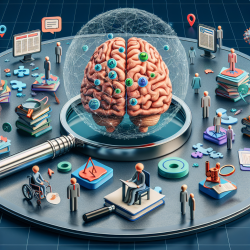Understanding Individualized Education Programs (IEPs) in North Dakota
Individualized Education Programs (IEPs) play a crucial role in ensuring educational success for students with disabilities. They are designed to provide educational benefits that prepare students for further education, employment, and independent living. In North Dakota, the IEP process is governed by specific guidelines that align with federal laws, ensuring that each student receives tailored support based on their unique needs.
Key Components of an IEP
An IEP must consider the student's present levels of academic achievement and functional performance. It also assesses the impact of the student's disability on their involvement in and progress through the general education curriculum. Here are some essential elements of an IEP:
- Individualized learning goals aligned with grade-level content standards.
- Specified services, specialized instruction, aids, and therapies.
- A detailed plan for measuring the student's progress.
All services provided under an IEP are free of charge to parents, ensuring that financial barriers do not hinder a student's access to necessary educational support.
Eligibility for IEP Services
To be eligible for services under the Individuals with Disabilities Education Act (IDEA), a student must have at least one of the 13 specified diagnoses or a related condition. These include:
- Autism
- Hearing impairment
- Deafness
- Deaf-blindness
- Intellectual disability
- Speech or language impairment
- Visual impairment or blindness
- Multiple disabilities
- Orthopedic impairment
- Other health impairment
- Traumatic brain injury
- Serious emotional disturbance
- Specific learning disability
The IEP Evaluation Process
A comprehensive and individualized evaluation is essential to determine a student's eligibility for an IEP. This process involves input from a multidisciplinary team, including the student and their parents. Parents must provide informed, written consent for the evaluation, which must be completed within 60 calendar days. Re-evaluations are required at least once every three years, but not more than once a year unless agreed upon by both the parent and the school.
IEP Team and Meetings
The IEP team consists of various stakeholders, including parents, special education instructors, general education instructors, specialists who can interpret evaluation results, and school representatives with authority over special education services. Meetings must be held within 30 days of the eligibility decision, with parents receiving timely notice. The participation of parents and, when appropriate, the student, is crucial to the process.
Conclusion
IEPs are vital in providing students with disabilities the support they need to thrive in their educational journey. By understanding the components, eligibility, and processes involved, parents and educators can work together to create effective educational plans that meet the unique needs of each student.
For more information, please follow this link.










